Intercepted: Speak, Know Evil
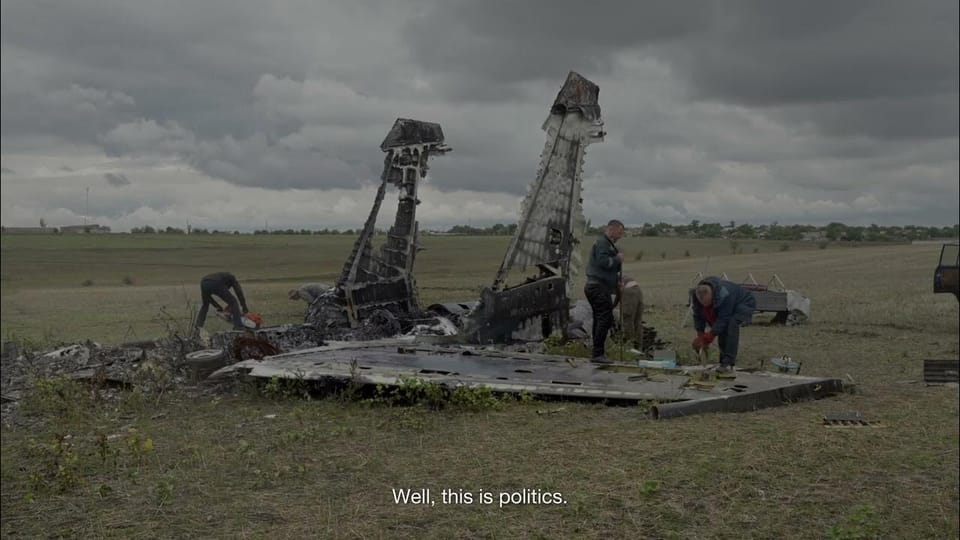
Greetings friends,
Here is the second part of the coverage of my Virginia Film Festival weekend. Once again my pen has outrun my plans: this was to cover both movies I saw Sunday, November 3, but I had too much to say about this one, so it gets this week to itself. However, the chronological theming still holds. As the previous entry looked at legacies of the past, today's wrestles with the perils of the present.
I'm afraid this entry will be much less enjoyable than the first. This is a grim movie about a subject that has only gotten grimmer since I saw it, but hopefully the read is no less enriching.
Sunday, 11/03, 12:00pm
Intercepted
(dir. Oksana Karpovych)
I didn't see last year's Best Documentary Feature Oscar winner 20 Days in Mariupol, but I read reviews of friends who found it impossible to separate its artistic and aesthetic decisions and its status as news, documentary in the strictest sense. But also propaganda, also strictly defined, media that exists to shape public opinion. When I first saw Intercepted I found myself of a similar mind. It exists above all as a call for continued support from Ukraine's European and American benefactors as it continues to weather an invasion, now over a thousand days old, by its larger Russian neighbor. When I watched it on November 3 it felt current, of the moment, beyond and beneath artistic considerations. Seventy-two hours later, in the wake of the American presidential election, it already began to feel outdated—and therefore, complete. Two weeks out, no longer burdened by relevance, it feels more approachable, if still mostly beyond judgment.
Intercepted is not a bludgeon of a war zone experience like 20 Days in Mariupol but rather something quieter, if no less unsettling: audio of intercepted phone calls from Russian soldiers to their loved ones, captured in the early days of the war, up through November 2022. The video that plays beneath is that of Ukrainians during periods of relative respite: cleaning, letting children play, preparing food, distributing supplies, all in half-destroyed urban ruins. There are important exceptions, some point-of-view shots from a roving tank, and a wordless long take within a POW mess hall (with the Russian soldiers' faces digitally altered rather than obscured, a questionable decision for a documentary), but by and large it is deceptively routine. There is no overt drama in this footage, just the humdrum of daily life quietly trying to keep on amid desperate conditions.
The film festival synopsis describes this as showing "the resiliance of the Ukrainian people," and this is an accurate term: not merely surviving in an objective sense but sustaining bonds of community even as munitions blow the ground beneath their feet apart. It's not a romantic or iconic portrayal of resilience, no one in that part of the world has time for posturing, but it sticks in the mind. A couple weeks after I saw this I watched Steve McQueen's Blitz, and as superlative as that movie's production design was, I could only see its bombed-out London locales for the expensive sets they were, after so recently seeing actual war zones from the present-day. The people of Ukraine speak little in this footage, but still manage to say a lot. (It must needs be said that the Palestinians, another people suffering an ongoing expansionist land grab and bombing campaign, with starvation tactics added for bad measure by the Israeli military, will be lucky if they can get a documentary in front of international cinemagoers, much less an expensive Oscar drama.)
The footage is straightforward, by necessity; the intercepted Russian soldiers' audio is by contrast a grim collage—not monolithically evil but a mess of sometimes conflicting impulses, almost all of which reveal a profound spiritual despair.
There are a handful of repeated motifs. The soldiers and the people they speak to frequently refer to the Ukrainians with a dehumanizing slur. They also call them 'Nazis' and 'faggots,' and someone at one point refers derisively to 'Gayropa.' (I honestly can't remember if the term 'woke' gets used, but it would not surprise me if it did.) There is little consideration of the people whose land the Russian soldiers have invaded and whose food they're stealing, yet there is also surprisingly little patriotic fervor. Rather than love of country, the other most common feeling is skepticism towards its authorities. More than one soldier tells his loved one that they do not actually know how the war is going and should not believe what the news is telling them. If, as can be inferred, the invasion is supposed to be a defensive measure against a spreading Western decadence and nuclear proliferation, there is little sense of what is actually being defended.
Between the polar hatreds of both Ukrainians and the official story about the campaign against them, there lies a spectrum of sentiments. About the only one that approaches positivity is the pleasure of tasting ice cream and fresh juice—pillaged, of course—along with brand name shoes and tracksuits, niceties unavailable back home. More often there is venting about the miserable grind of war, of having all your comrades blown up, of knowing you've been changed, for the worse, despite promising at the beginning that would not happen. Some of the soldiers do not even mind this. At least one describes in detail how he tortured prisoners--if you want to ruin your day, look up Twenty-One Roses--and how little he cares anymore how little he cares. The only moments to rival that kind of depravity are when the mothers and girlfriends on the other end of the call outdo the soldiers in bloodlust. More than once do the women refer to Ukrainians as subhuman, and one goes so far as to admonish her man to "grill" them. It all adds up to so much negation and nihilism, from which the only escape is still more absence: a soldier reckoning with his own impending death, and the promise imposed on his girlfriend to never let their son enlist. It is truly hopeless—by design.
What isn't included in a documentary can be just as important as what is, and in one about a war between two nations the question is more or less obligatory. There is no way of knowing what other, more anodyne or endearing interactions of the Russians were recorded, nor how representative the film is of what was available in the collected conversations. Nor is the side-by-side comparison with Ukraine's beleagured citizenry rather than its fighting forces accidental; no doubt members of the military's far right Azov Battalion have bragged of committing atrocities against the hated enemy in their private correspondence. The entire value of a documentary, especially of a still raging war, is to see something real, the journalistic truth of factual reportage rather than the universal truths of fiction (or Werner Herzog's ecstatic truth, which wildly dances between both). To leave out half the story is to risk telling literal half-truths. Intercepted is not telling the whole story of the war—but then, it isn't really trying to do so.
Despite its audiovisual disharmony, this is advocacy filmmaking, which for better or worse sets aside the idea of a balanced or at least broad perspective on a topic in favor of making the most compelling case for a unified message. And really, why on Earth shouldn't it? Ukraine has for over a decade now fended off the advances of Vladimir Putin's Russia, first with the ouster of post-Soviet cat's paw Viktor Yanukovich after the Euromaidan protests of 2013, then Russia's illegal incursions into Crimea and Donbas in 2014, the attempted extortion of foreign aid by an American Putinite remora in 2019, and finally the 2022 invasion of Ukraine by nearly 200,000 Russian soldiers, the most gratuitous violation of a nation's sovereignty since American tanks rolled into Iraq in 2003. The state of Ukraine is fighting for its very existence, the Ukrainian people for their lives, culture, and freedom of self-determination; for some failed American playwright on the internet to grouse that Ukrainian filmmakers are not sufficiently living the life of the mind under fire, is borderline obscene.
I have spent this review talking myself in circles around Intercepted, and I still have no idea how to evaluate it. Indeed scoring it is beside the point. The real reason for its existence, urgent and heartfelt, is to keep the plight of Ukraine in the hearts and minds of the American people and their leadership. Alas, but the American people chose to return the remora to power, all but guaranteeing an ugly partition if not the complete absorption of Ukraine into the russian federation, in the name of "peace." Ukrainian president Volodymyr Zelensky has responded to the American election results by playing along, offering a congratulate rictus to the man who had previously tried to extort from him $400 million of military aid if he did not dig up dirt on his opposition. He is sacrificing his dignity, albeit in the hopes that he need not sacrifice any more of his people.
It is an unspeakably sad outcome, one that casts Intercepted in a new, indefinite twilight. The juxtaposition of Ukrainian citizens and Russian soldiers, intended to contrast optimism and pessimism, dignity and degradation, fortitude and exhaustion, no longer reads as a study in opposites. Their fates are now joined. The Ukrainian people may yet lose, but the Russian soldiers whose most private conversations we are made privy to, they lost as soon as their government sent them to fight its war of imperial conquest. Zelensky warned as much in the speech he gave to the Russian people on the eve of the invasion, pleading with them to stop their country's march into the abyss. I've said enough and will give him the last word:
War is a calamity that carries a huge cost. People lose their money, their reputation, their quality of life. They lose their freedom. But most importantly, they lose their loved ones—and they lose themselves. There is a lack of everything good, and an abundance of pain, flith, blood and death. There are thousands—tens of thousands—of dead.
...
War deprives everyone of 'guarantees'. Security, after all, will no longer be guaranteed for anyone.
Who will suffer the most from this? The people.
Who does not want it more than anyone? The people.
Who can prevent it? The people.

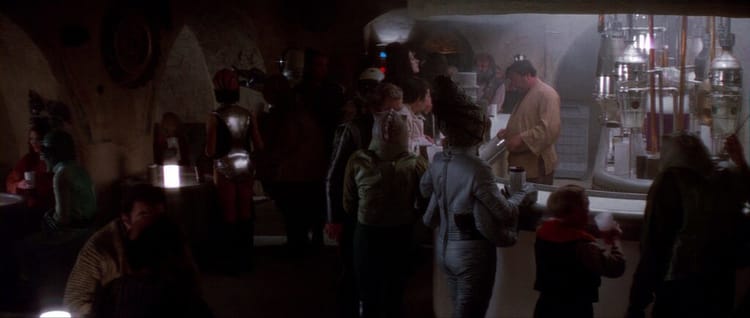
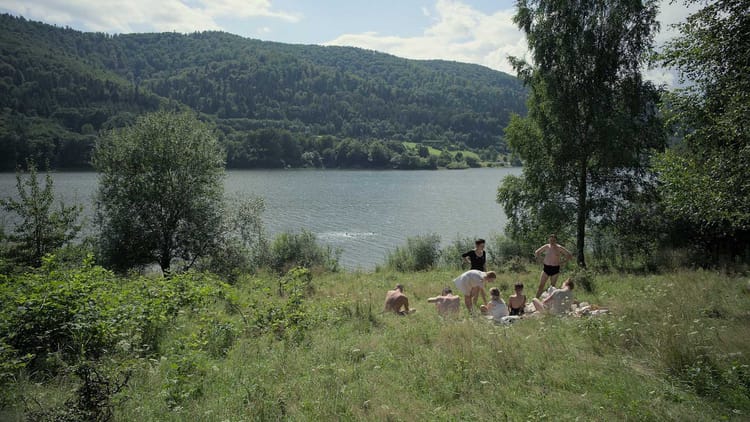
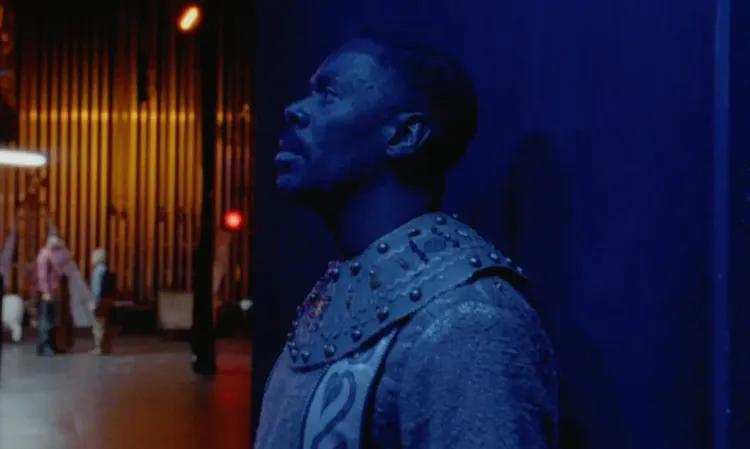
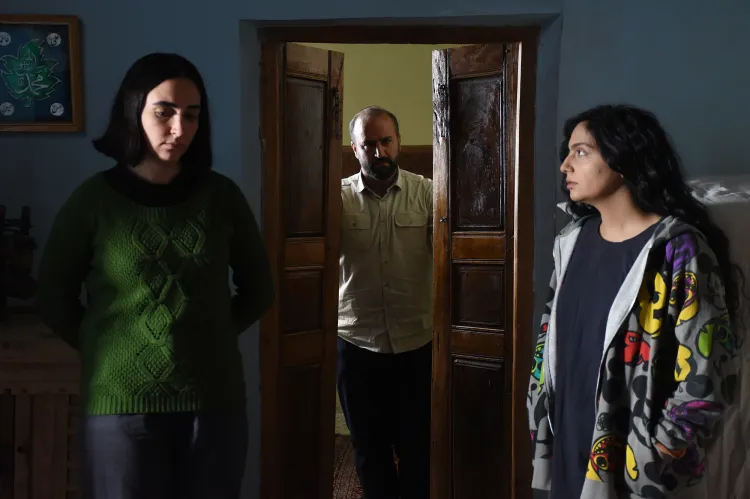
Member discussion